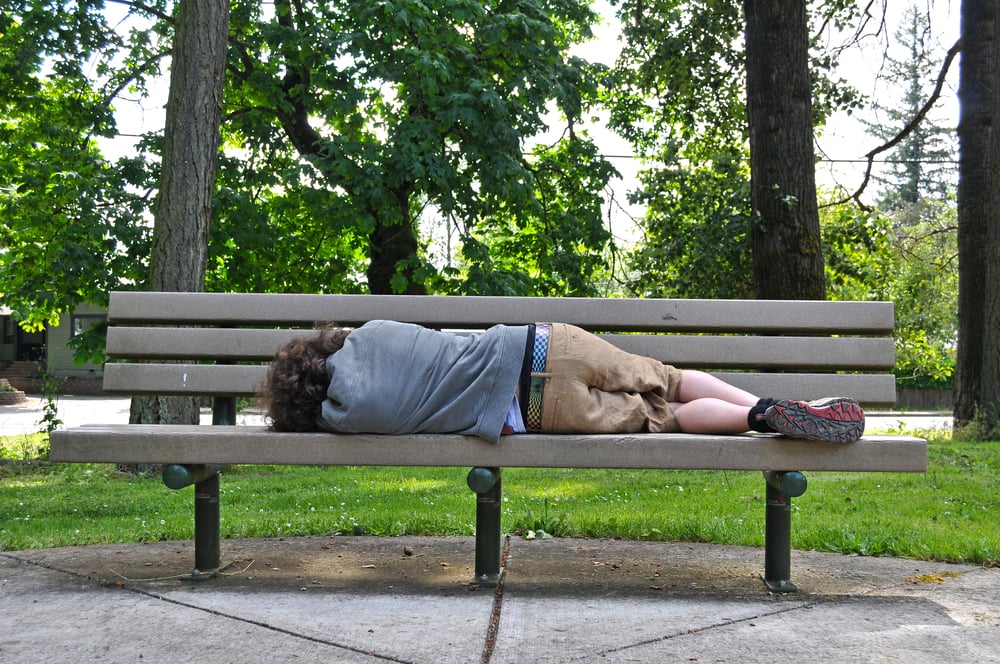Anti-homelessness advocates have long suspected that foster care creates a “pipeline” to youth homelessness in Canada.
Data released today from the Canadian Observatory on Homelessness’ national youth homelessness survey, conducted in 2015, shows they were right.
The Observatory’s “Child Welfare and Youth Homelessness in Canada: A Proposal for Action” policy brief released today notes that almost 60 per cent of the 1,103 homeless youth (ages 13 to 24) surveyed in nine provinces and Nunavut had previous or current involvement with child welfare.
That’s in line with previous estimates that suggested 50 per cent of the approximately 6,000 to 8,000 youth who’ll be homeless tonight would have had some child welfare experience. That number doesn’t include kids who stay under the radar by “couch surfing” or staying in hotels rather than a shelter.
While previous surveys focused on youth in shelters, the Observatory’s survey included kids receiving other youth and homelessness-related services, capturing many of those so-called “hidden homeless.”
For youth whose first experience with homelessness happened before age 16, it’s even worse than previously thought: nearly 75 per cent had child welfare involvement.
The report notes kids with child welfare experiences are 193 times more likely to end up homeless than those who’ve never had a child protection case file.
Several recommendations
The Observatory, in collaboration with A Way Home Canada, which advocates for youth-specific housing-first services, has several recommendations for preventing and ending the connection between child welfare and youth homelessness.
Anyone paying attention to British Columbia’s Representative for Children and Youth’s child welfare and foster care recommendations over the last decade will be familiar with some of them: extending supports for youth in care, as needed, to age 25; ensuring foster kids have safe, stable housing at all times; and focusing on underserved groups, like Indigenous, racialized, and lesbian, gay, bisexual, trans, and two spirited youth.
But the Observatory also echoes recommendations youth homelessness and addictions advocates in B.C. have been repeating for years, including:
- Implementing a harm reduction model for youth substance use and mental health issues;
- Creating a provincial homelessness prevention plan for youth;
- Implementing strengths-based policies and practices that help youth prepare for life after care;
- Improving front-line social workers’ training and supports;
- Supporting youth’s access to mental health and addictions treatments, and easing their transition to adult services;
- Reducing frontline worker caseloads;
- Enabling youth in care to provide feedback to improve the system; and
- Using a standard assessment tool to predict risk of homelessness among youth — an exact description of the Youth Assessment and Prioritization tool developed in Alberta.
Alberta is already ahead of the curve, creating a youth-specific homelessness strategy that focuses heavily on prevention and solutions, like finding stability through affordable housing, education, and support services, with less focus on emergency responses like adding shelter beds.
"I appreciate the extensive analysis that went into crafting this report on the challenge of youth homelessness," said Children and Family Development Minister Katrine Conroy in an email to The Tyee.
“While we’ve just received the report and will need to take time to consider the recommendations, I assure you that keeping the door open for young people who age out of the child welfare system is a priority for this government.”
During the B.C. election, the Green Party pledged a minimum basic income for youth exiting care until age 24. The NDP promised to expand the application-based Agreements with Young Adults that provides money for some youth leaving care and going into school or work until age 26.
Both parties promised to implement unfulfilled recommendations from the Representative for Children and Youth, the Select Standing Committee on Children and Youth, and from Chief Ed John, whose government-funded report on reducing the number of Indigenous youth in care came out in late 2016.
“At one point or another, most of us have reached back to our families for help as young adults, and it’s this ministry’s duty to ensure that type of support is in place for the young people in our care,” reads Conroy’s statement.
“There will be changes in this policy area. Good work has been done, but we’re still far from where we need to be. Premier John Horgan has made this a priority for me in my mandate letter, and we’ll be working over the coming months to ensure the right supports are available for youth aging out of the system when and how they need them.” ![]()
Read more: Housing
















Tyee Commenting Guidelines
Comments that violate guidelines risk being deleted, and violations may result in a temporary or permanent user ban. Maintain the spirit of good conversation to stay in the discussion.
*Please note The Tyee is not a forum for spreading misinformation about COVID-19, denying its existence or minimizing its risk to public health.
Do:
Do not: